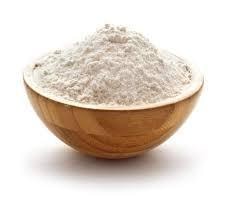
Yam flour is a product resulting from the drying and grinding of yams. It is versatile and nutrient-dense. The distinct earthy flavor and dense texture lend yam flour to be great in the preparation of both sweet dishes and savory ones. Except for using it in food preparation, it has an impressive nutritional profile that makes it a good healthy alternative to traditional flours. Yam flour is rich in complex carbohydrates, dietary fiber, vitamins, and minerals that provide energy, healthy digestion, and overall well-being. We bring forth here the nutritional value of yam flour, its health benefits, and how it can be added to a balanced diet.
Nutritional Breakdown for Yam Flour
Yam flour is prepared from peeled, dried, and ground yams. Yams are root vegetables of the Dioscorea family. Thus, the nutrient content of yam flour is generally similar to that of fresh yams except for the concentration of some nutrients through drying. More details on the major nutrients in yam flour are provided below:
- Carbohydrates: Yam flour has a high content of complex carbohydrates, and the energy release is gradual in comparison to other simple carbohydrates. The complex carbs are richer in fiber, thus having a lower glycemic index than refined flour, meaning that they slowly begin to release energy into the bloodstream, thus keeping the glucose stable and reducing the probability of spiking blood sugar levels. It would make yam flour a far more attractive alternative for a person with diabetes who compares it to high-GI refined flour.
- Dietary Fiber: Yam flour contains dietary fiber, both soluble and insoluble. Soluble fiber regulates blood sugar and cholesterol levels, helping the body normalize glucose levels in the bloodstream and lower cholesterol levels. This helps the body maintain regularity during bowel movements. They contain a lot of fiber for the management of weight by reducing overeating and promoting feelings of fullness.
- Vitamins: Yam flour contains some very important vitamins. The significant vitamins include a B-complex family called B6, which participates in energy metabolism as well as brain functioning. Others are vitamins C and E. Vitamin C is an antioxidant and a booster for immune health. Vitamin E improves health in the skin and also is a more potent antioxidant.
- Minerals: Yam flour is rich in minerals such as potassium, magnesium, and manganese. Potassium controls blood pressure; magnesium aids in proper muscle and nerve function, and manganese is involved in bone health and metabolism.
- Protein: Yam flour has a moderate amount of protein content though it does not match that of the legume flours. Since fiber is present, yam flour is a good ingredient to make sure to feel full and keep muscles intact.
Health Benefits of Yam Flour
Based on the nutritional composition, pounded yam flour is useful and provides an array of health benefits. Some of the major benefits through which yam flour might impact health include:
1. Maintaining Digestive Health
Yam flour is also a dietary fiber source with major contributions to digestive health. In addition, insoluble fiber will contribute toward the mass addition to stool that aids in the regular movement of waste through the digestive tract hence not predisposing the gut to constipation. In addition, yam flour also contains soluble fiber that may help promote the growth of advantageous bacteria in the gut; such bacteria play roles playing within overall health, for instance, during the digestion process, immune function, and even mental health.
2. Healthy Blood Sugar Concentration
The flour is made up of complex carbohydrates, which, when further metabolized with fibers, have a lower glycemic index than refined flour. This makes the absorption of yam flour slow and the increase in blood sugar gradually, rather than shooting up like with other foods. People with diabetes, and those looking to keep their blood sugar in check, can replace refined flour with this yam flour in most recipes.
3. Aids in Weight Loss
Yam flour is rich in fiber and moderately calorie-dense, thus making it effective in weight management goals. The high amount of dietary fiber keeps the eater full for a long period. Fullness helps keep hunger pangs in check and thus prevents overeating. Additionally, slow-burning carbs also produce energy for a long time because of which people are not that prone to feel the craving to snack in between meals.
4. Generates Energy
Yams flour contains carbohydrates, B vitamins, and minerals that provide a long-term energy supply. B vitamins, especially B6 are the nutrients responsible for the breakdown of food into useful energy, but complex carbohydrates yield energy after a reasonable period of time. For athletes and active people, yam flour is a good choice to use during the pre-workout meal.
5. Immune system stimulation
Yam flour contains vitamin C, which promotes the strengthening of the body’s immunity to prevent invasion by germs and illnesses. Other antioxidants like vitamins C and E help reduce oxidative stress that results from harmful free radicals. This helps protect cells, reduces inflammation, and may help in long-term well-being.
6. Healthy Heart
Potassium and fiber in yam flour work together to promote heart health. Potassium works opposite to sodium in contributing to lowering blood pressure, and the latter can lower cholesterol. All of these contribute to a healthier cardiovascular system, which can lead to a lower risk for heart disease.
Conclusion
Yam flour is an incredibly nutritious ingredient. In terms of the high amounts of fiber, vitamins, and minerals, it can help a person vary their diet and introduce much-needed nutrition into the body. There are many other added benefits to using Yam flour: aiding in digestive health, helping with blood sugar control, and giving more energy. In short, it is an essential ingredient to add to your well-balanced diet in both traditional and modern recipes.
